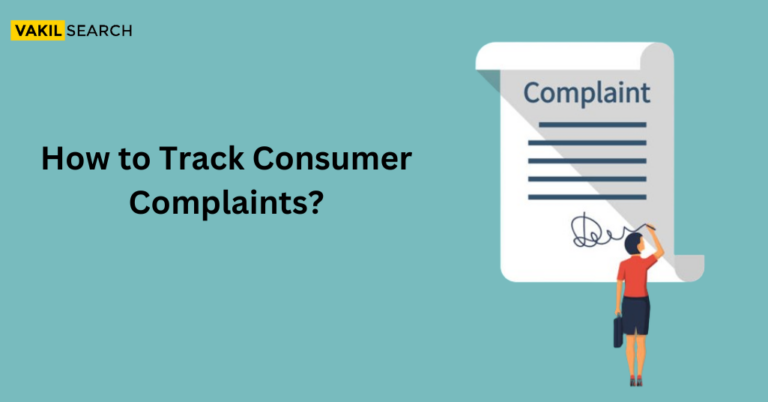A consumer complaint must be submitted to Commission's Registry within two years of the date the cause of action first materialized. To learn more about typical customer concerns
A notarized affidavit with 1+1 sets (with file cover) + the number of opposing parties should be included with every consumer complaint, along with the complainant’s signature. The common consumer complaint should be rendered and indexed in the following order, along with all copies:
- Make an index
- Events schedule
- Memo from the Parties (with fresh complete addresses & telephone no.)
- A complaint with a notarized affidavit
- receipts, vouchers, and other supporting documentation for the e commerce consumer complaint. (All annexures must be verified as true copies on the last page with a name and signature)
- A notarized attested affidavit is necessary if the delay exceeds the allowed amount of time. (2 years have passed since the start of the action)
Consumer complaints have a fee of 5,000 yen (demand draught in favor of “The Registrar, NCDRC, New Delhi”).Customers can file complaints at the “Upbhokta Nyay Bhawan,” Ground Floor, “F” Block, General Pool Office Complex, INA, New Delhi-110 023 on all working days (Monday through Friday) between 10:00 a.m. and 4:30 p.m.
What Are Some Common Consumer Complaints?
Regularly, we make purchases of goods and services. To live comfortably in the modern world, we rely on corporations and organizations, and we pay them with our hard-earned money for everything from services like banking and education to basic necessities like food and clothing.
However, companies might once in a while fail to deliver high-quality services or goods. Many people are aware that there are laws and consumer court in place to protect consumers in these circumstances.
To let you know who is out there trying to scam you, the FTC has listed the top 10 common consumer complaints list they believe indicate your likelihood of being financially abused, defrauded, or exploited.
Credit Cards
Among the complaints were issues with accounts and billing, sudden increases in interest rates, late fines, and overcharges. The only surprise is the category’s low placement on the list. Credit card complaints have historically ranked among the top three. The company might profit from recent congressional legislation that restricts the ability of credit card companies to impose exorbitant fees and interest rates.
Mobile Phone Services and Telecommunications
Consumer complaints included the cost of calls to toll-free numbers, illegal service switching (slamming), and misleading advertisements for prepaid phone cards. Although the FTC doesn’t consider complaints about excessive termination fees, which are regrettably legal, we think the number of complaints in this area would be much higher.
Scams Involving Fake Cheques and Foreign Currency
“Letters or emails offer the ‘opportunity’ to share in a percentage of millions of dollars that a self-declared government official is seeking to unlawfully transport out of a foreign country in exchange for money,” according to the FTC.
Internet-Based Bidding
The complaints included failure to provide all necessary information about the product or the terms of sale, non-delivery or late delivery of goods, and goods of lower value than advertised. The phrase “Craigslist or eBay scam” is used to describe this.
Frauds Using Imposters
To trick victims into taking part in a lottery scam overseas, con artists assume the identities of government employees or the victims’ relatives.
Know more: How to File a Case in Consumer Court?
Sales via Catalogues and Home Shopping
Numerous problems were reported by customers, including hidden costs, untimely or nonexistent deliveries, and a failure to uphold promises. A little online research could help avoid many of these scenarios.
If there are more than two unresolved BBB complaints or a rating of less than 90% on Amazon, Yelp!, or Bizrate, think about your options. RipoffReport.com is yet another useful website.
Sweepstakes, Lotteries, and Awards
The FTC includes in this category “promotions for ‘free’ rewards for a fee; international lotteries and sweepstakes provided by phone, fax, email, or mail, etc.” Are you beginning to discern a pattern?
Get-something-for-nothing schemes fall under the third category, which is covered here. In the 1930s, the abbreviation TANSTAAFL was first employed. The sign states that there are no free meals in life. The statement is still valid today as it was then.
Web-Related Services
Internet service providers have problems with trial offers, account issues, hidden fees, spyware, adware, malware, and social networking services, among other things (ISPs). In our opinion, the main problem for customers dealing with Internet businesses is that there is rarely a storefront or a place where they can go to complain in person.
Always, always, always use a credit card from a bank you are friendly with when paying online so they will trust you rather than the merchant.
Debt Recovery
Debt collectors have been charged with committing a number of illegal and unethical acts, such as making repeated contacts, inflating the size or status of a debt, failing to provide the appropriate notification, and even employing profane language.
It is cruel and, in many cases, illegal to kick someone who is down. Learn about the Fair Debt Collection Practices Act if you’re being harassed and use it as a guide the next time someone calls you. The quality of your sleep will improve.
Additionally, the most common consumer complaint.
Theft of Identification
According to the FTC, when someone uses your personal data, like your social security number or credit card number, to conduct fraud or larceny. Hey, wait a second! What makes this a concern for consumers?
In fact, identity theft occurs when your financial institution makes payments to the incorrect person while deducting money from your account. A bank’s primary duty is to “provide money to the appropriate person,” even if that person claims to be you. What good are they to us if they are unable to achieve that? To file a consumer court online complaint, get in touch with the professionals at Vakilsearch.
Also, Read:










